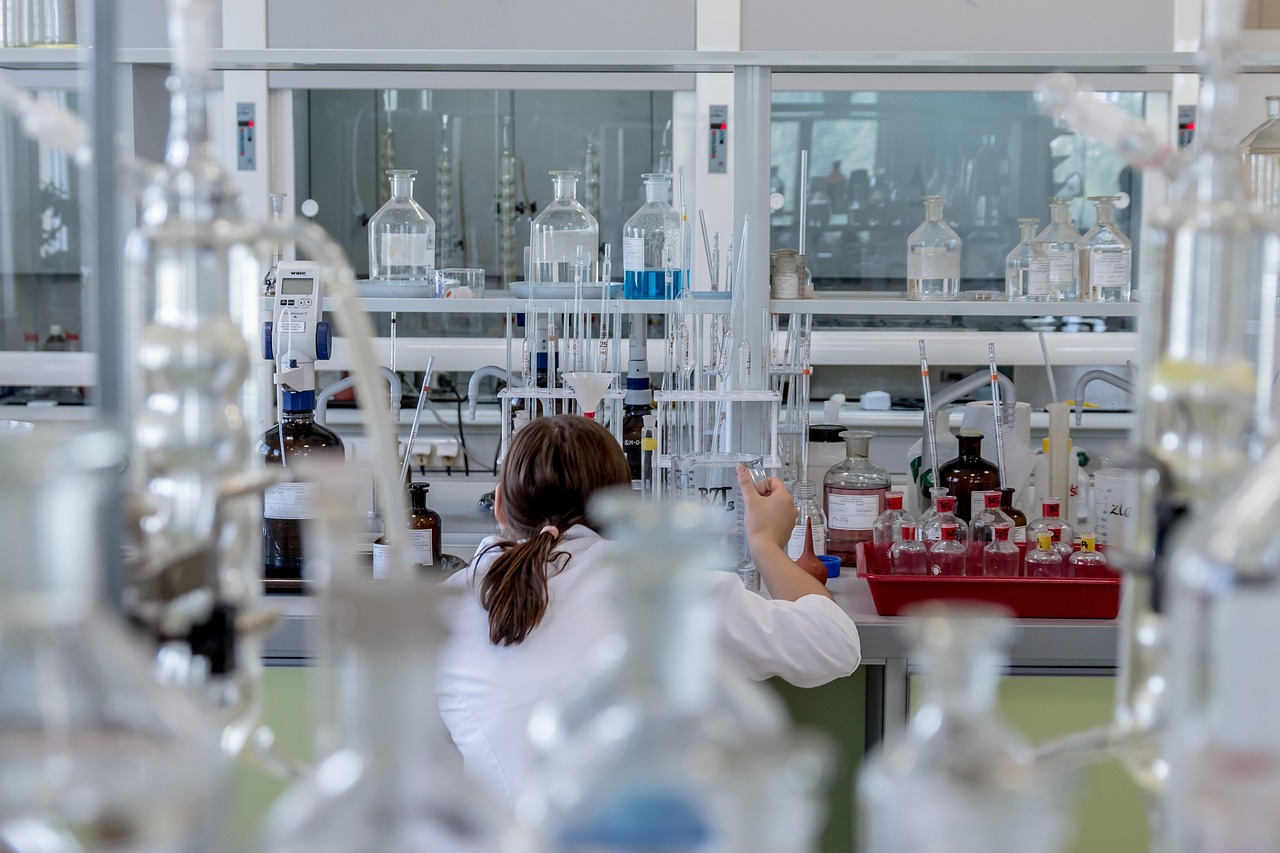Twinloop project team
Recrutement
Offres à pourvoir actuellement
- Assistant ingénieur pour l'unité UPC (publiée le 19/01/2026)
- Postdoctoral Position offer (updated 16/01/2026)
- Postdoctoral Position offer (published 16/07/2025)
- Postdoctoral Position offer (published 20/05/2025)
Assistant(e) ingénieur(e) de laboratoire
Contexte de travail
Le LABERCA est une Unité Mixte de Recherche labellisée par la Direction Générale de l’Enseignement et de la Recherche du Ministère de l’Agriculture et par INRAE (département AlimH). L’unité étudie les principales classes de résidus et contaminants chimiques dans une démarche globale et intégrée d’appréciation du risque, depuis l’agrofourniture jusqu’à la denrée (sécurité chimique de l’aliment) et au-delà en s’intéressant aux effets santé chez l’Homme (santé environnementale).
Missions
Au sein de l’unité essai promoteurs de croissance, vous assurerez, avec l’appui de vos collègues, le bon déroulement des essais en respectant les exigences mises en place au LABERCA. Vous êtes en charge de la préparation et de l’analyse des échantillons ainsi que de leur traçabilité documentaire dans le cadre de prestations de service ou de projets de recherche.
Activités principales
- Gestion documentaire :
- Assurer la traçabilité des travaux et la tenue des enregistrements (fiche de suivi, cahier de pesée, déstockage, cahier d’enregistrement, fiche temps)
- Constituer le dossier analytique tout au long de l’analyse
- Enregistrer les données brutes et les retraiter
- Rédiger des annexes au rapport d’essai
- Gestion et réalisation technique
- Assurer la bonne conduite des essais en respectant les méthodes en vigueur
- Assurer la planification des ressources nécessaires à la réalisation de chaque action (consommables, standards, instruments, hottes, échantillons)
- Assurer l’enregistrement de l’échantillon sur la base de données Essai
- Assurer le cycle de vie des machines de bout en bout, de l’expression des besoins utilisateurs à la sortie de parc en assurant la traçabilité
- Encadrement des stagiaires
- Métrologie
- Maintenance des équipements
- Préparation et utilisation des matières et des consommables
- Participation à des projets de recherche en lien avec l’activité de l’unité
La fiche de poste
Compétences requises
- Savoir-faire:
- Chimie analytique (en couplage chromatographie- spectrométrie de masse, préparation d’échantillons)
- Connaissance des objets d’études : médicaments vétérinaires et substances interdites et/ou des contaminants chimiques
- Connaissance de la réglementation spécifique au domaine d’activité et particulier pour les aspects analytiques et les limites réglementaires
- Savoir-faire en maintenances des instruments de mesure
- Savoir-faire spécifique aux opérations de vérification des moyens de mesure
- Connaissance des logiciels Windows et de traitement de l’information analytique
- Savoir-être :
- Rigueur et sens de la méthode
- Sens des responsabilités et autonomie
- Capacité à travailler en équipe
Type de contrat
Catégorie A, contractuel.le , CDD de 12 mois.
Rémunération
Entre 1846.75 et 2361.09€ brut mensuel selon expérience/profil
Formation et/ou qualification
Technicien.ne de laboratoire titulaire d’un niveau équivalent L3 ou M2
Nos atouts
- Temps de travail de 35h
- Prise en charge partielle des frais de transports en commun
- Participation mutuelle
Date de prise de fonctions
Février 2026
Contact
Merci d’adresser votre candidature par mail à audrey.poirier(at)oniris-nantes.fr
Postdoctoral Position offer
Background
Oniris, LABERCA, France, is offering a 2-year postdoctoral contract in the field of analytical chemistry applied to the characterisation of organic contaminants in an interdisciplinary context integrating the food, circularity and environmental dimensions.
The work is part of two collaborative National and European research projects:
- TWINLOOP (ANR project, 2025-2029, 21 partners), focused on the characterisations of chemical contaminants in plastics intended for food contact recycling processes, using a variety of techniques.
- PARC (EU Horizon EU Cofund, 2022-2029), sub-project P4.3.3.b_Y2_E02-Sentinel animals_ONIRIS (15 partners) investigating animal species as sentinels of the environment and human chemical exposomes.
Main missions
- Development and application of non-targeted analytical methods (LC/IM/HRMS, timsTOF Pro II) for the detection and characterisation of organic contaminants in various matrices (plastics, bees, aquatic invertebrates).
- HRMS data acquisition and annotation, assessment of exposure profiles.
- Participation in the analysis of the chemical exposome within an interdisciplinary framework.
- Drafting scientific reports, contributing to the writing of articles and promoting results of the projects.
Candidate profile
- Strong chemical background with a PhD in Analytical Chemistry or equivalent.
- Hands on experience with analytical method development and advanced data analysis within chromatography and HRMS workflows.
- Experience or knowledge about chemical contaminants, food safety and exposome.
- Good collaboration and communication skills (written and spoken English).
Working environment
The post-doctoral fellow will join a dynamic team in a recently renovated and very well-equipped laboratory, with more than 25 mass spectrometers using a variety of technologies (Orbitrap, QTOF, IMS, GC-MS/MS, LC-MS/MS, etc.). Based in Nantes, France, LABERCA offers a stimulating environment at the interface between academic research and public expertise.
Application
Applications must be submitted to ronan.cariou(at)oniris-nantes.fr as one pdf file containing all materials to be given consideration. The file must include, a cover letter, a curriculum vitae and supporting letters. before February 3, 2026
Working application
Postdoctoral Position offer
Contexte de travail
LABERCA (Laboratory for the Study of Residues and Contaminants in Food) is offering a postdoctoral is offering a postdoctoral contract for 1 year in the framework of PARC project.
Partnership for the Assessment of Risks from Chemicals (PARC) aims to develop next-generation chemical risk assessment to protect human health and the environment. It supports the European Union's Chemicals Strategy for Sustainability and the European Green Deal's “Zero pollution” ambition with new data, knowledge, methods and tools, expertise and networks.
The PARC programme has three main objectives:
- Develop the scientific skills needed to address current and future challenges in chemical safety
- Provide new data, methods and innovative tools to those responsible for assessing and managing the risks of chemical exposure
- Strengthen the networks which bring together actors specialised in the different scientific fields contributing to risk assessment
Main missions
- The 12 months position aims to contribute to the development of a new analytical method for PFAS suspected screening on human serum samples. The contribution will cover all stages of the method, from the preparation of human serum samples to the optimisation of mass spectrometry analyses, including non-targeted analytical processing workflows for application to human biological samples..
Candidate profile
- PhD in analytical chemistry.
- Strong expertise in mass spectrometry (especially HRMS) and both targeted and nontargeted approaches.
- Experience with complex data processing (software such as Compound Discoverer, MZmine, Skyline, etc.) is a plus.
- Strong interest in exposome research, chemical safety, and interdisciplinary science.
- Team-oriented, autonomous, and scientifically rigorous.
Working environment
The postdoctoral researcher will join a dynamic team within a recently renovated and fully equipped laboratory, with over 25 mass spectrometers of various technologies (Exactive, QTOF, IMS, GC-MS/MS, LC-MS/MS, etc.). LABERCA provides a stimulating research environment at the interface between academic research and public expertise.
Application
Send your CV, cover letter, and if possible, two letters of recommendation (combined into a single PDF file) to: ronan.pommereuil(at)oniris-nantes.fr, before August 15, 2025
Note: be sure to go trough Mailinblack service email validation process
Working application (copie 1)
Postdoctoral Position offer
Contexte de travail
LABERCA (Laboratory for the Study of Residues and Contaminants in Food) is offering a postdoctoral contract for a minimum of 1 year (renewable once), in the field of analytical chemistry applied to the characterization of organic contaminants. The position is part of an interdisciplinary framework combining environmental, food, and health-related aspects (One Health approach). The research will contribute to two collaborative projects:
- ICEBERG (Horizon Europe project), focused on characterizing the chemical exposome and its impacts across the environment-food-health continuum.
- PLAPOTEMIX (French ANR project), dedicated to studying micro
Main missions
- Develop and apply targeted and non-targeted analytical methods (LC/GCMS/MS/HRMS) for detecting and characterizing organic contaminants in various matrices (snow, sediments, food, microplastics, biological matrices).
- Process HRMS data, annotate suspect signals, and evaluate exposure profiles.
- Participate in the chemical exposome analysis within an interdisciplinary framework.
- Contribute to scientific reporting, manuscript writing, and dissemination of project results.
Candidate profile
- PhD in analytical chemistry.
- Strong expertise in mass spectrometry (especially HRMS) and both targeted and nontargeted approaches.
- Experience with complex data processing (software such as Compound Discoverer, MZmine, Skyline, etc.) is a plus.
- Strong interest in exposome research, chemical safety, and interdisciplinary science.
- Team-oriented, autonomous, and scientifically rigorous.
Working environment
The postdoctoral researcher will join a dynamic team within a recently renovated and fully equipped laboratory, with over 25 mass spectrometers of various technologies (Exactive, QTOF, IMS, GC-MS/MS, LC-MS/MS, etc.). LABERCA provides a stimulating research environment at the interface between academic research and public expertise.
Application
Send your CV, cover letter, and if possible, two letters of recommendation (combined into a single PDF file) to: gaud.dervilly(at)inrae.fr, before June 15, 2025
Working application
We will adopt the principles of the European Charter for Researchers and Code of Conduct for the Recruitment of Researchers, promoting open, merit-based and transparent recruitment and attractive working and employment conditions. The main supervisor will make a pre-selection of eligible candidates for the open position. Ineligible and incomplete applications will not be considered. The pre-selected candidates will be invited to an online interview with at least one additional member of the personal supervisory team. A reserve list of candidates may be kept for up to 6 Months



